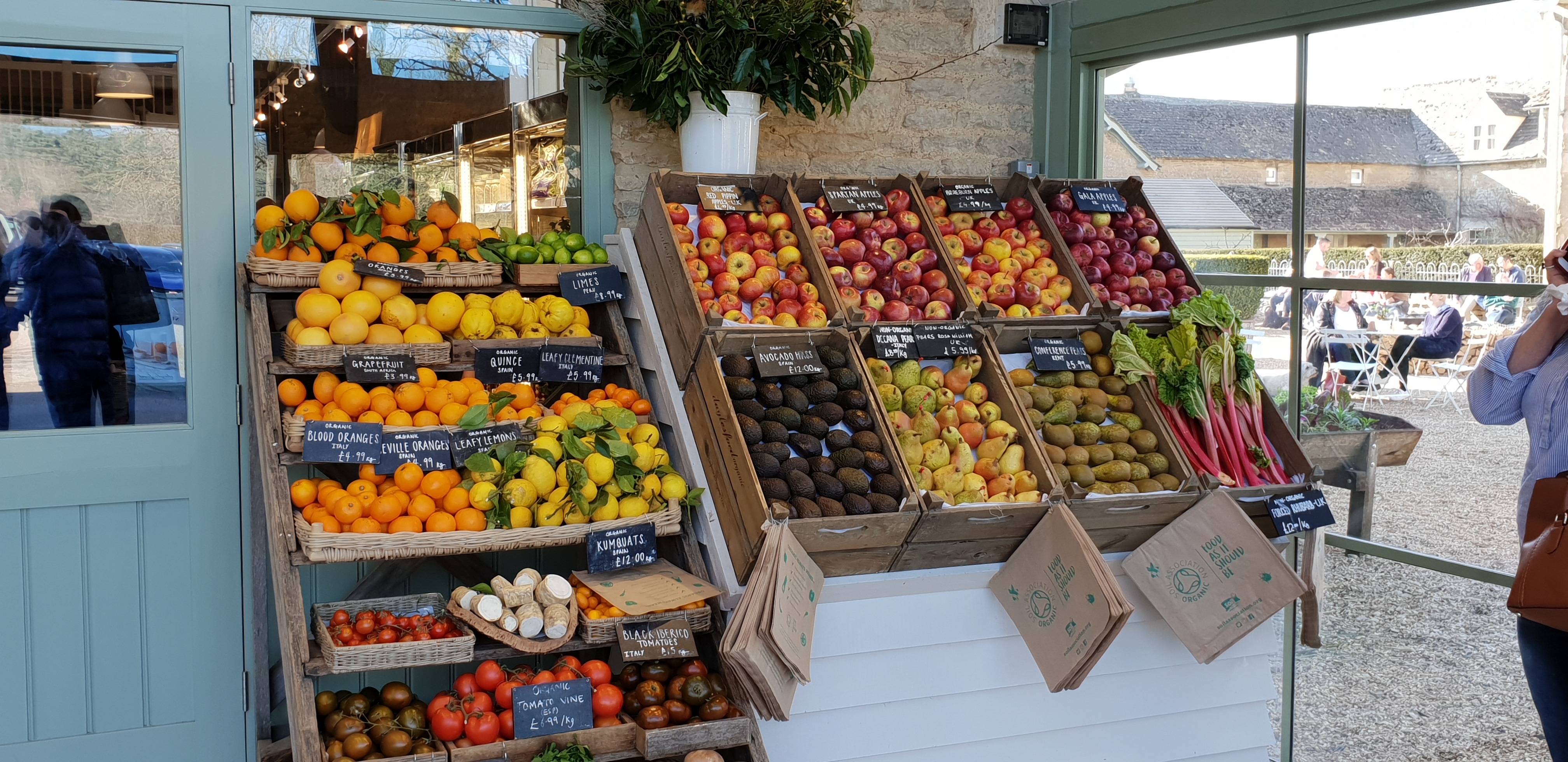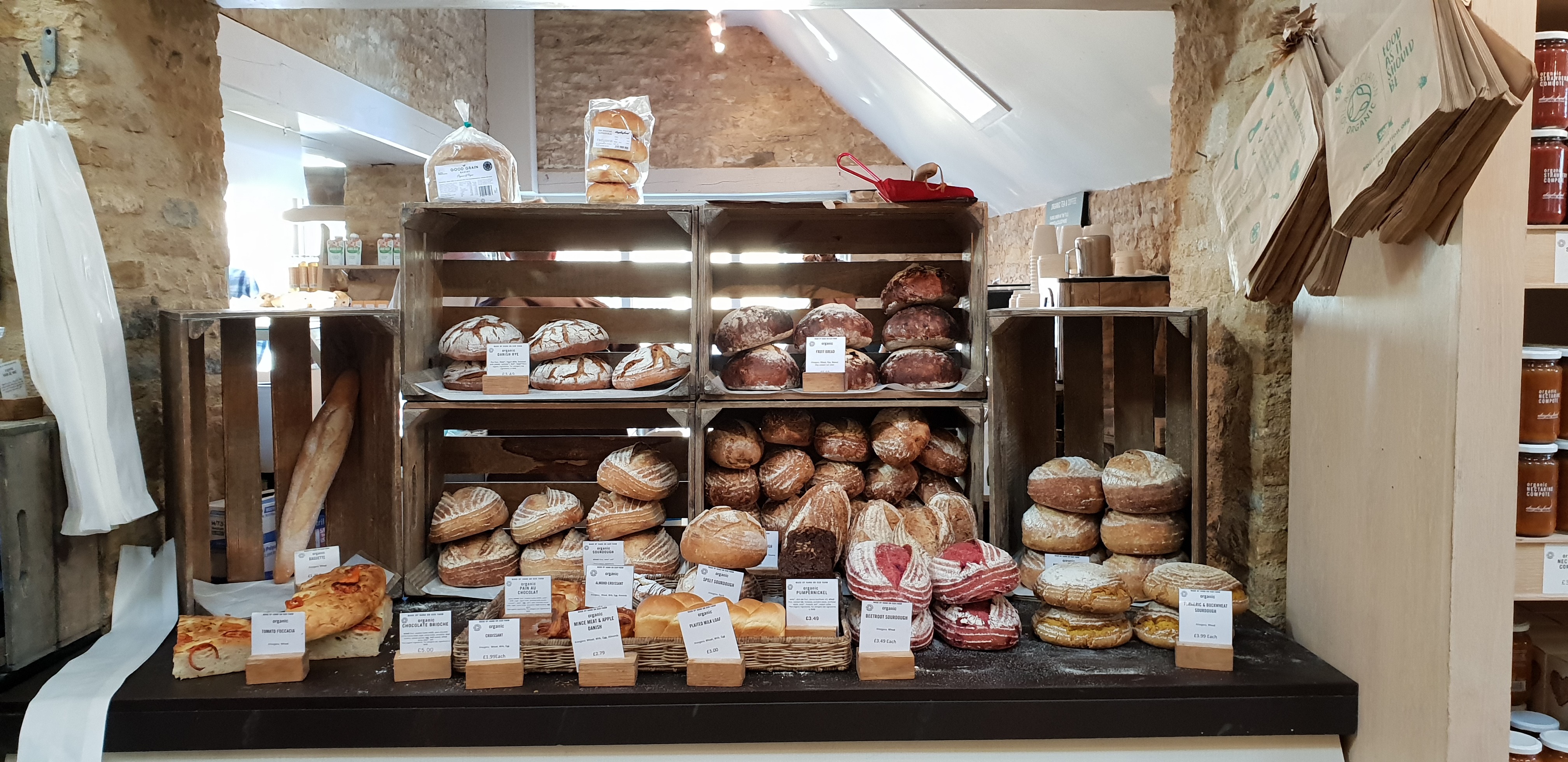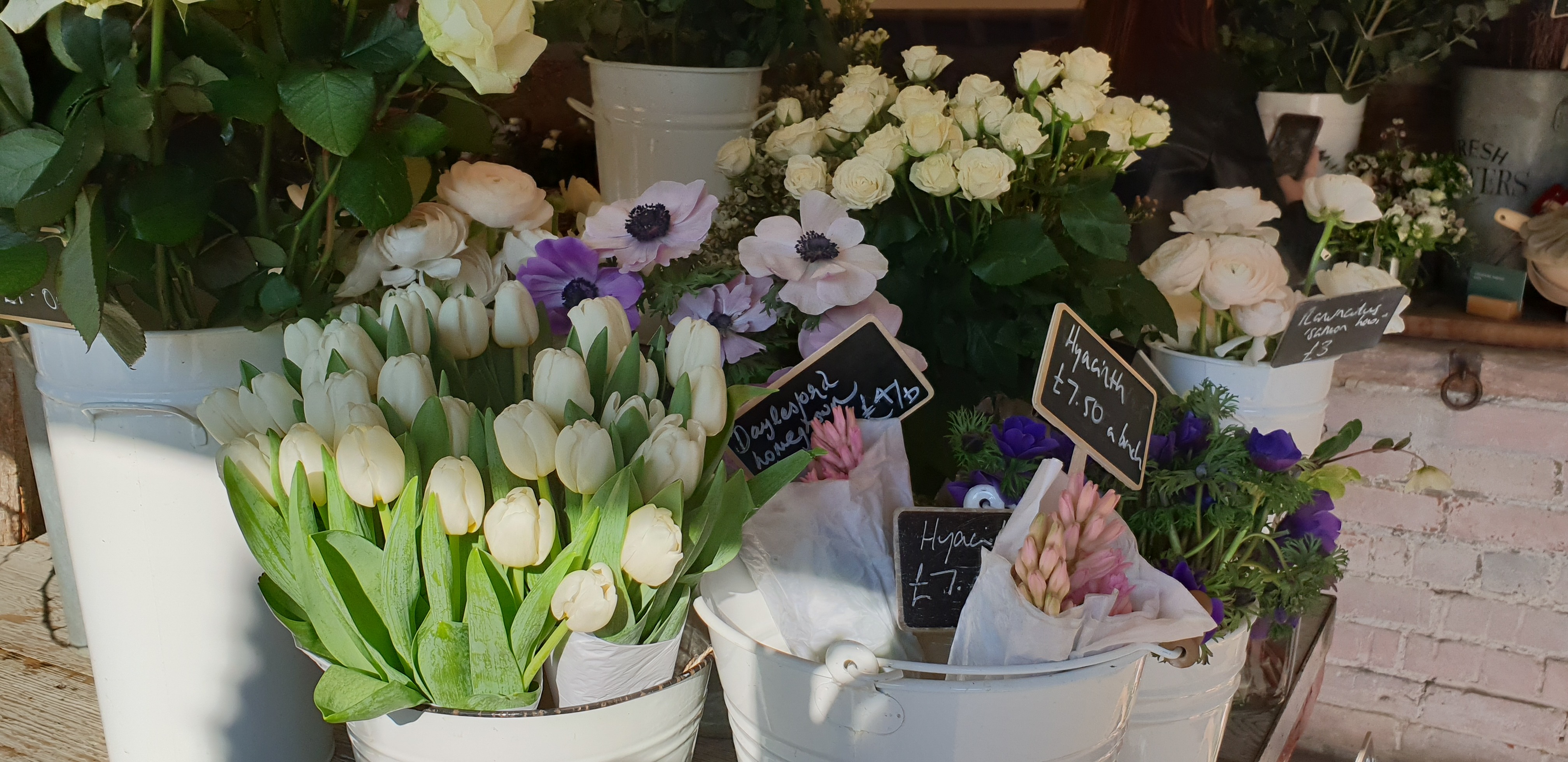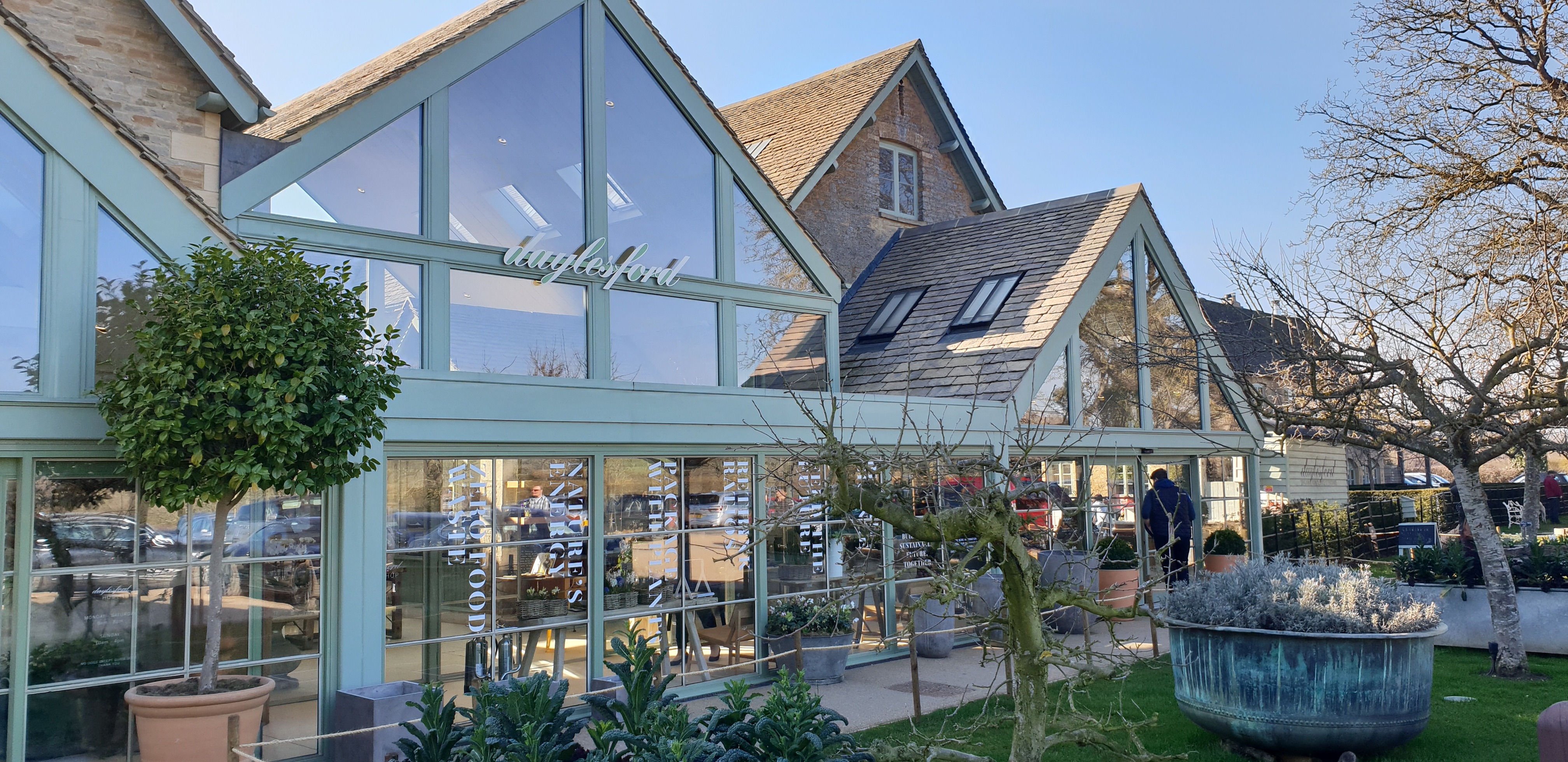Daylesford organic is an opulent farm shop located on Daylesford estate in the heart of the Cotswolds. Since opening ten years ago the farm shop has become the go-to local destination for seasonal, sustainable and organic produce, all of which comes directly from the estate.
The 1,700-acre estate is located near Chipping Norton in Gloucestershire and traces its roots back more than 40 years to when Lady Carole Bamford, the wife of British billionaire Sir Anthony Bamford transformed their family farmland over to sustainable, organic farming.
Since its formation all those years ago, Lady Bamford’s Daylesford enterprise has become a lifestyle supersite and one of the world’s most successful organic businesses, setting the precedent for a sustainable future.
“What began as a simple passion for real food and a desire to feed our children better has grown into Daylesford as we know it today, one of the most sustainable organic farms in the UK,” said Lady Bamford.
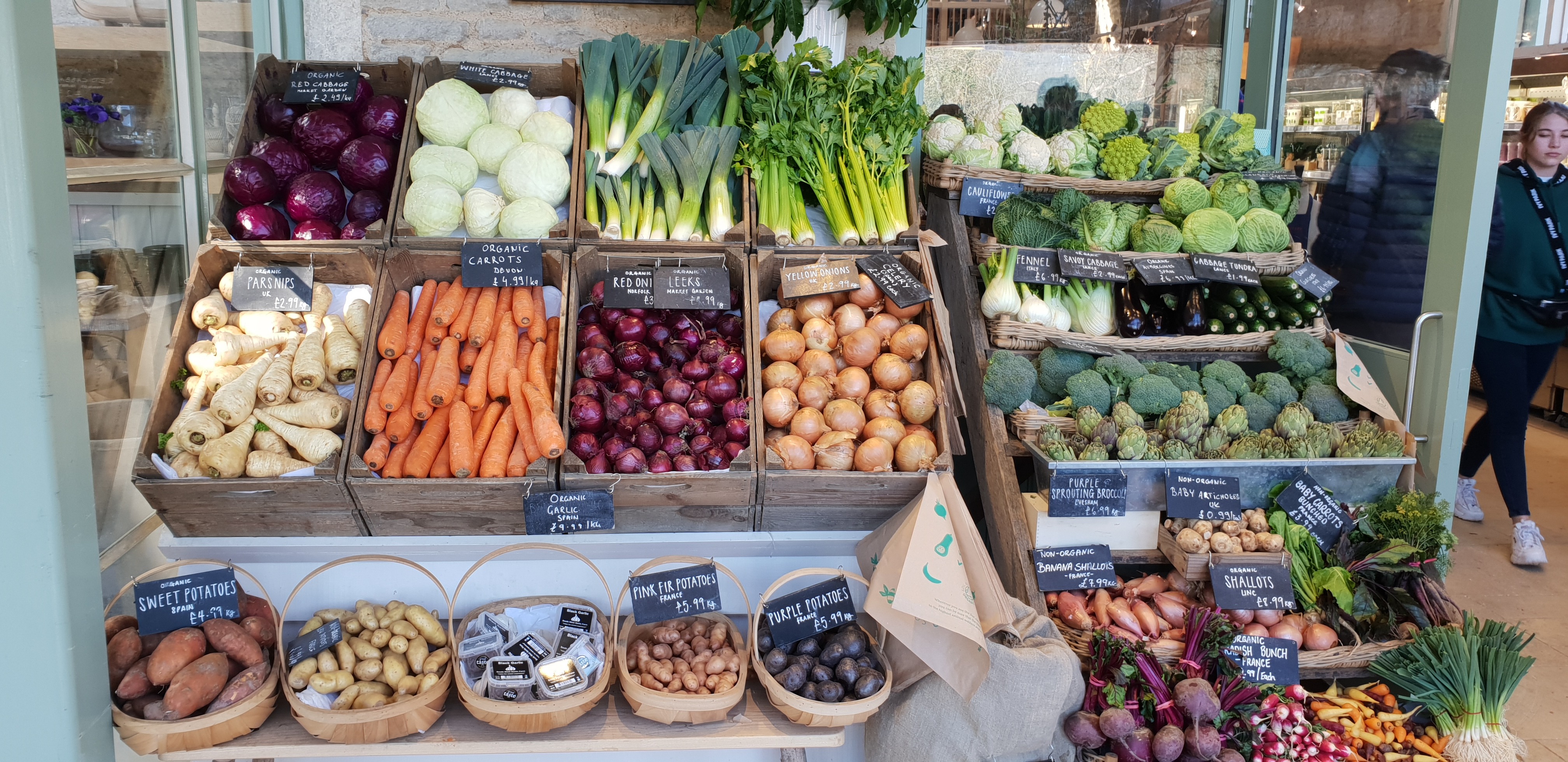
Ten years ago, Lady Bamford transformed a collection of old barns on the bucolic estate into what has now arguably become Britain’s most famous farm shop. The shop takes full advantage of its location selling not just organic food and produce but also luxe clothing, flowers, gardening equipment, homeware, spa treatments, and yoga classes.
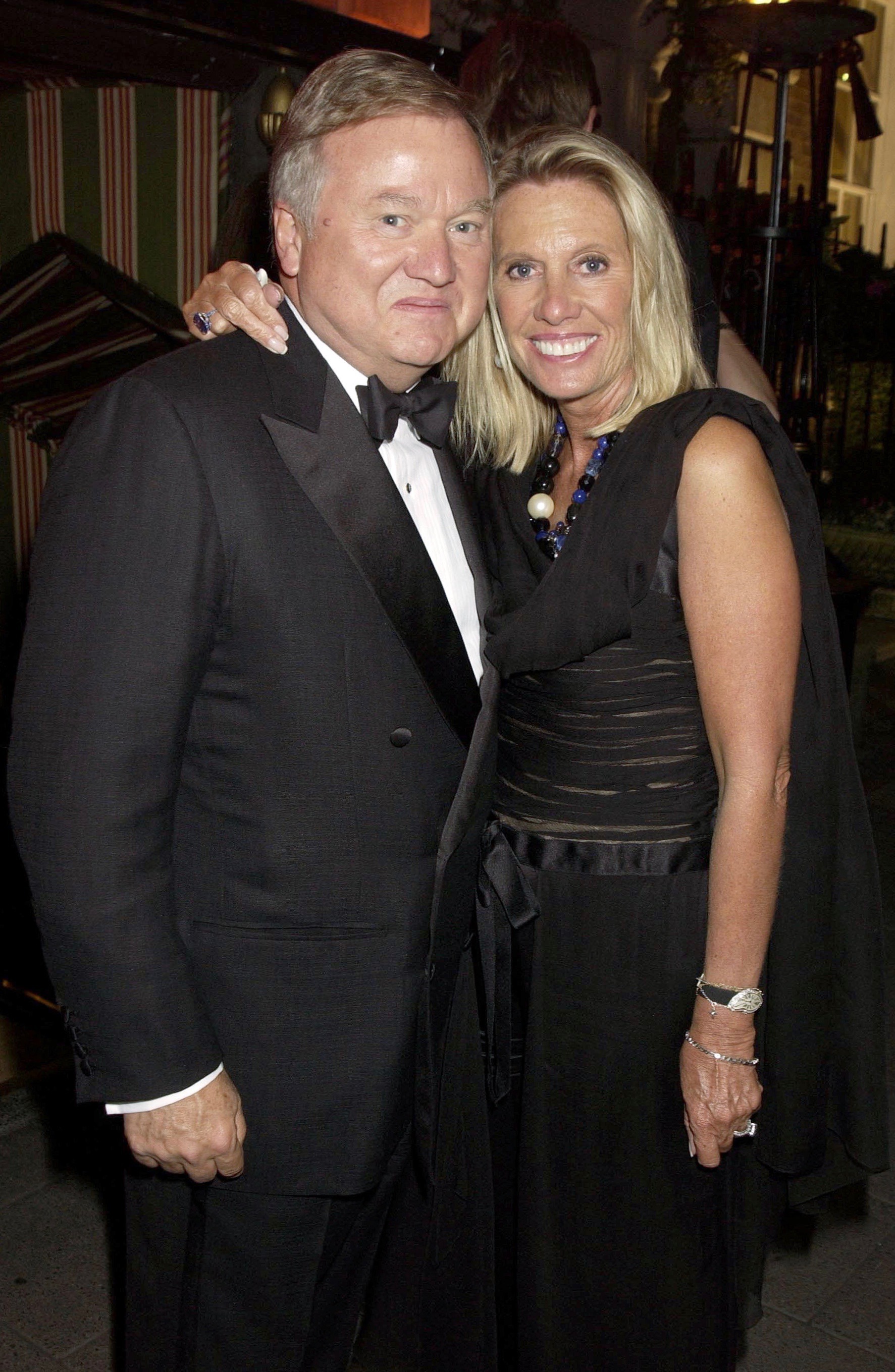
Bordering on the side of pretension, the shop and estate exude affluence, attracting thousands of people every year including the rich and the famous.
Gad Thompson, manager at the farm’s Organic Cafe amusingly explained: “ I mostly see husbands who have lost their wives. It’s a common practice at Daylesford.”
Straight from the estate
All the food in the shop including the fruit, vegetables, meat, fish and dairy is all organic and ethically produced, the majority of which comes straight from the estate. The food section in the shop can be compared to Selfridge’s food hall, just organic and more expensive.
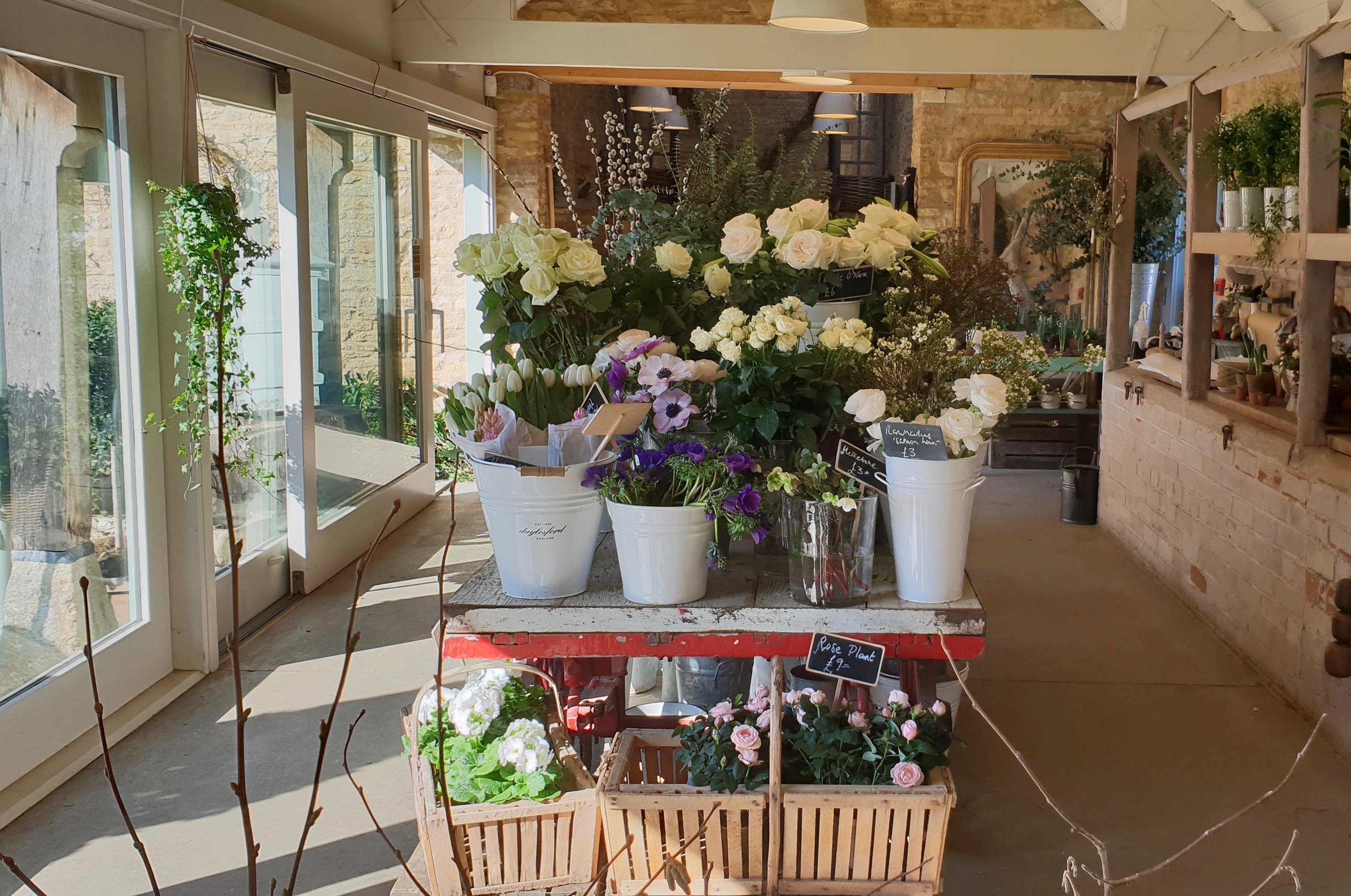
Despite its apparent popularity, the organic produce group made a loss of £2.7 million in 2017. Whilst nobody disputes the high quality of Daylesford’s products, the prices would shock even the wealthiest of customers. Many Gloucestershire residents have criticised Bamford over the years, calling Daylesford an elitist enterprise and “inappropriate for the countryside”.
“One could easily lampoon Bamford’s effort at Daylesford organic as a sort of Marie Antoinette folly,” notes James Reginato, a columnist at W magazine.
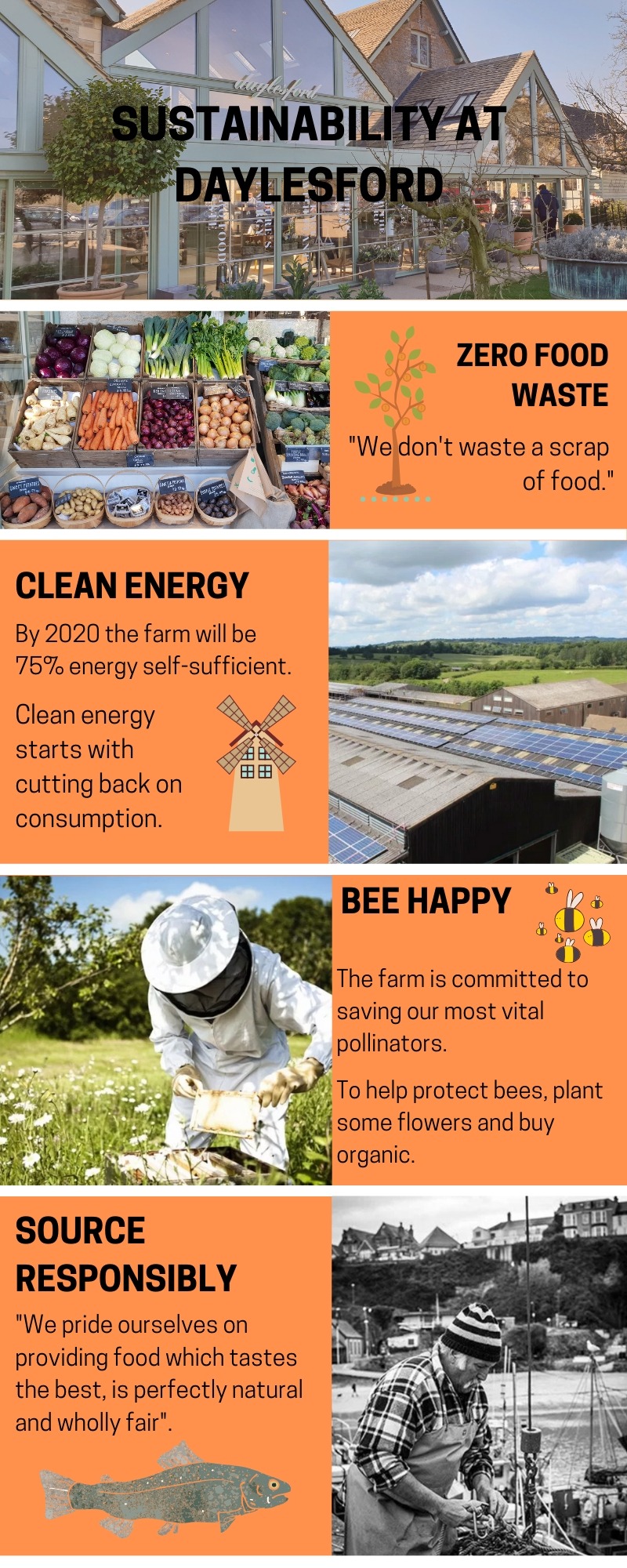
However, Bamford’s contribution to sustainable, organic farming is undeniable. Since its formation, Daylesford farm has won over 100 awards and is making strides to become the world’s first fully self-sufficient farm. It is also the largest employer in Cotswolds, where jobs are hard to come by.
After a rare interview with Lady Bamford in 2007, Reginato confirmed her enthusiasm towards organic food and sustainable farming as genuine, remarking that she came across as “knowledgeable, serious and passionate about organics”.
Almost plastic-free
An almost plastic-free zone, Daylesford’s packaging is designed to be reused and it is hoped that by the end of this year, 100 per cent of the farm’s packaging material will be recyclable. Plastic pollution is currently the biggest threat to our oceans and without intervention, plastic will out-weight fish in the ocean by 2050.
The need for local, sustainable and seasonal farming has never been more important and it starts with looking after the soil, which Bamford describes as ‘everything’.
“It’s the foundation of our farm, from which everything else grows. The soil is the plant; the plant becomes the man,” she said.
Daylesford views sustainability as a “chain of goodness” that starts with healthy soil and, finishes with healthy animals and people. It has set the precedent for sustainable, organic farming, which in the long-term will protect natural resources and animals, improve overall well-being and most importantly safeguard the planet for future generations.
